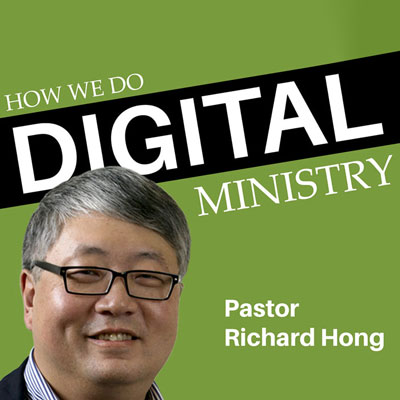The challenge of blending physical and digital worlds is real
November 28, 2021
 As many churches navigate the both/and world of hybrid ministry, where in-person and online worship coexist, there’s a word to keep in mind: “phygital.” I didn’t invent it. It was coined in 2013 to describe creating a seamless experience that is the best of both the digital and physical realms. And there lies the goal — and the challenge — for our churches, that of creating hybrid worship where two intrinsically different environments come together seamlessly.
As many churches navigate the both/and world of hybrid ministry, where in-person and online worship coexist, there’s a word to keep in mind: “phygital.” I didn’t invent it. It was coined in 2013 to describe creating a seamless experience that is the best of both the digital and physical realms. And there lies the goal — and the challenge — for our churches, that of creating hybrid worship where two intrinsically different environments come together seamlessly.
During the pandemic, many churches changed their order of worship to accommodate the digital venue. For example, at my church we used to have up to five pieces of music at an in-person service. That is too much for an online service, so we have limited the music to just two pieces. Another interesting development over the past year is that online we encourage people to engage with one another using the chat function. We would never encourage people to chat in their seats during in-person worship. While we had been livestreaming our worship since 2017, before the COVID-19 pandemic, our livestream made no provision for church school. During the pandemic, though, our online church school has been one of our strongest features.
As we return to in-person services, our main question is: How can we provide an optimal experience for both our online and in-person congregants? I believe that many churches are placing too much emphasis on providing simultaneous, identical experiences, rather than tailoring the experiences to their respective environments.
In a hybrid worship experience, a single event is created that is simultaneously provided to both in-person and online attendees. The drawback to the hybrid approach is that it causes churches to include only those things that can be provided in both environments. People have different expectations in the different environments, and we need to try to meet those needs. Educators have told us that hybrid classrooms, where a single teacher tries to teach in-person and online students at the same time, are not working well. But the other extreme of creating separate online and in-person worship services is also unsatisfactory. This presents the risk of creating such divergent experiences that people are unable to move seamlessly between them from week to week.
When thinking through such challenges, I often turn to professional sporting events as one of my “thought models.” The in-person and home experiences of a sporting event are simultaneous but different. Announcers and camera angles aid the home experience. The ambience of the in-person experience is wonderful, even if you can barely see the players on the field. We like both options, yet our expectations of each are different. Some 60 years ago, when sports were first being broadcast, team owners feared that broadcasting games would kill ticket sales. The opposite happened. Broadcasting games enlarged the fan base and ticket sales soared along with viewership. I believe that vibrant online worship will eventually increase in-person attendance.
As we look toward our post-COVID-19 worship, we need to ask: What is the optimal online worship experience? What is the optimal in-person worship experience? Which aspects must be or can be shared, and which must be provided separately? In my ministry context, the most important common aspect of our worship is the Prayers of the People. Right now, people text in their prayer concerns, which are read aloud and prayed for. Our church school probably needs to be offered separately in a context-specific format. The sermon for the online service might be live from the worship space, or it might be prerecorded. We’re still working through the complexities of providing quality worship experiences that are accessed in person and online.
It is important to remember that I am not claiming that either online or in-person is a superior experience. I believe that most people will appreciate both. Our ultimate goal is for people to connect with God through worship as often as possible, using the means that works best for them in any given week. I don’t think any of us has all the right answers, nor is there one right answer for everyone. But this is an opportunity to rethink our worship services. My encouragement is simply for you to step back, think about the most effective way to reach more people more of the time, and tailor your worship to suit each mode in order to best nurture the relationship of the people with Jesus Christ.
Richard Hong, Pastor of First Presbyterian Church, Englewood, New Jersey
Let us join in prayer for:
PC(USA) Agencies’ Staff
Christy Dickson, Operations Specialist, Presbyterian Foundation
Dawn Diggs, Operations Reconciliation Specialist, Presbyterian Foundation
Let us pray
O God, you are the friend to whom all can come. You give us more than we can ever know, and you give it freely and abundantly. Help us to see you in the faces and lives of those with whom we work, that while we minister, we also may be ministered to. In Jesus’ name we pray. Amen.


No comments:
Post a Comment